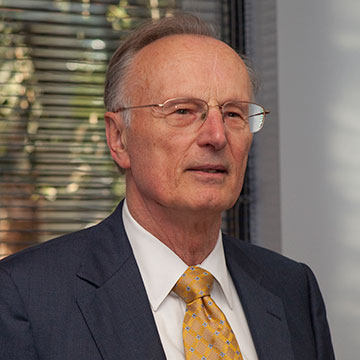
David W. Rasmussen, dean of the Florida State University College of Social Sciences and Public Policy since 2003, will step down May 6 after 13 years of distinguished service as dean.
Rasmussen will return to the college’s faculty for two years before retiring from FSU after 50 years of service in May 2018.
“Under the wise guidance of David Rasmussen, the College of Social Sciences and Public Policy has prospered, with highly successful faculty, students, alumni and programs at every turn,” said Sally McRorie, provost and executive vice president for Academic Affairs. “By the time of his retirement, Dean Rasmussen will have devoted 50 years to helping FSU meet its mission and vision. One could hardly ask for a more dedicated colleague and friend.”
Rasmussen, the James H. Gapinski Professor of Economics, joined the FSU faculty in 1968 as an assistant professor and was promoted to professor in 1979. He served as director of the Policy Sciences Program from 1991 to 1998 and directed the DeVoe L. Moore Center for the Study of Critical Issues of Government and Policy from 1998 to 2003.
“I have greatly enjoyed my 13 years of service in this position and believe the college well serves its students while conducting first-class research in service of Florida and the nation,” said Rasmussen, who also praised the faculty members who served as department chairs during his years as dean, the college’s outstanding faculty, and staff members that have served the college so well.
Tim Chapin, a professor in the Department of Urban and Regional Planning who has served as the college’s associate dean for development since 2014, has been named interim dean. Chapin joined the college in 1999 as an assistant professor in the Department of Urban and Regional Planning and served as department chair from 2008 to 2014.

Under Rasmussen’s leadership, the college launched the Social Science Scholars Program, which provides students with opportunities for personal growth and professional development inside and outside of the traditional classroom setting, and the “Get More Than a Degree” initiative to increase the quality of undergraduates’ experience. The college has also added new graduate degrees in public health and geographic information systems, as well as a major in African-American studies.
In 2013, the Academic Ranking of World Universities in Social Sciences ranked FSU’s programs 19th among U.S. public institutions and best in the state of Florida.
The college has almost 5,000 students and 122 full-time faculty members. It comprises six academic departments and nine centers and institutes.
Despite declining state revenues during the national recession, Rasmussen takes particular pride that the college was able to maintain the size and quality of its programs during these austere years.
“Spending on doctoral students is particularly vulnerable in times of budget cuts, but we weathered these fiscal storms as well as possible,” Rasmussen said. “I believe our departments and programs are in excellent shape and poised to continue our rise in the national rankings.”
A national search for Rasmussen’s successor is expected to start in the fall.




